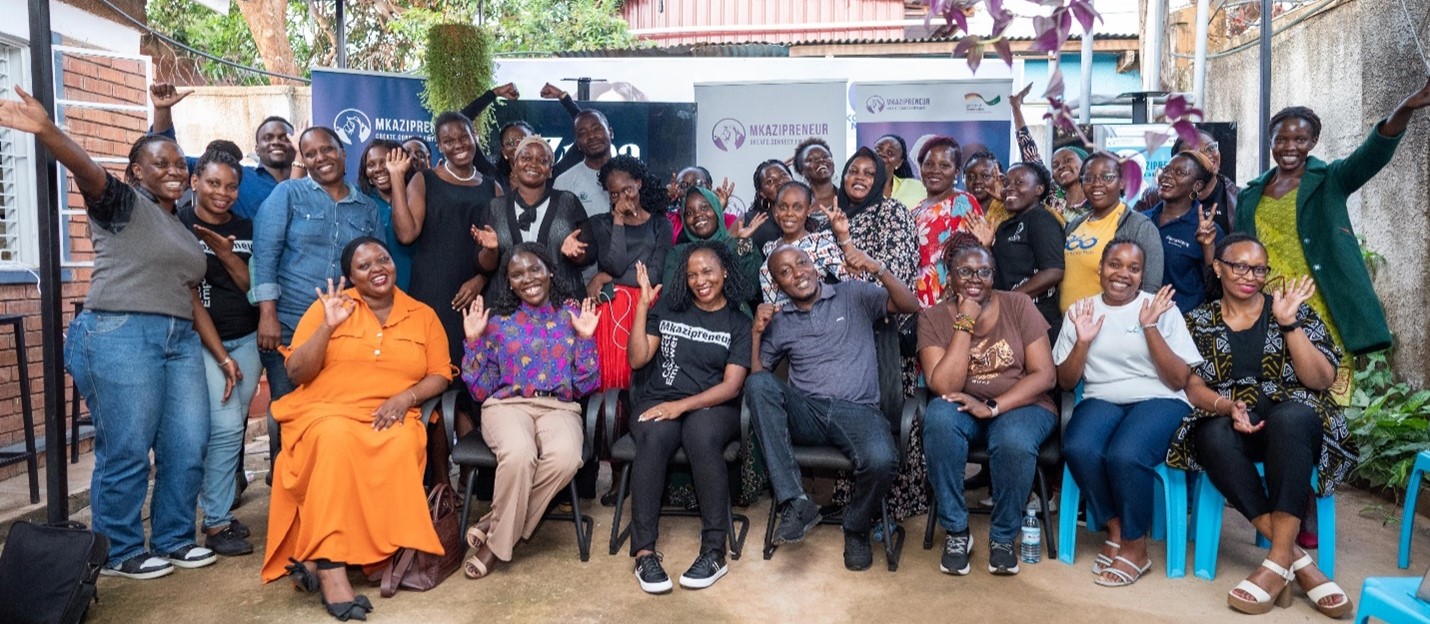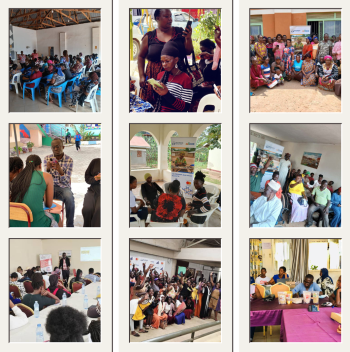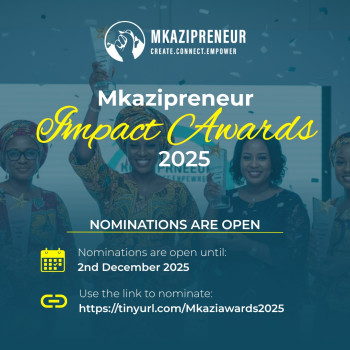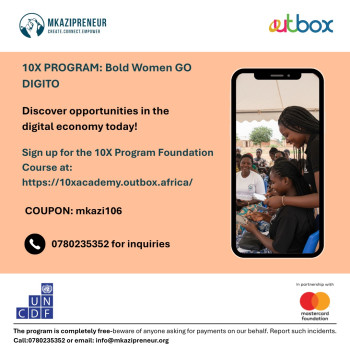MKAZIPRENEUR AND ZUBA NETWORK DOCUMENTARY SCREENING ON CROSS-BORDER TRADE
Mkazipreneur
and Zuba network on 25th October 2024 conducted a screening event for a
documentary filmed by the latter, on boosting trade and entrepreneurship among
women across Africa. The documentary was filmed following the African
Continental Free Trade Area (AfCFTA) initiatives to boost cross-border trade in
Africa. With a focus on boosting trade among women in the continent, the
documentary covers key research and fundamental findings from women across
Africa on the challenges faced by women regarding trade and commerce - looking
at how, while benchmarking key businesses and entities that have empowered
women to make the most of their businesses; from micro businesses to formalized
and trade-worthy entities.
According
to the AfCFTA, Africa boasts of the largest population of entrepreneurial women
across the world, with a huge potential for intra-African trade and farther
beyond continental confines. This poses an interesting challenge upon African
countries to ensure that women are empowered to reap a lot more from trade and
entrepreneurship than they currently can.
Despite
the amazing statistic on women involvement in trade, Dr. Maxime Houinato, the
UN Women Regional Director for East and Southern Africa, believes that there
are a lot of barriers standing in the way of the progress of trade by women
which largely gravitate around their undermined rights to trade.
Traversing
the entire continent, we can see a plethora of challenges affecting the potency
of women in trade and entrepreneurship, which include but are not limited to
bureaucratic processes with heavy tariffs on trade, exploitation involved in
trade, a shortage of knowledge on trade systems and currency transactions, and
shortage of collateral to afford commercial business loans.
According
to the Organization for Economic Cooperation and Development, more than a
quarter of businesses are either run or founded by women, though many remain
informal due to fear to get loans and collateral to accumulate capital, which
leaves them at the micro level of business.
“I
don’t own collateral. If I go to the bank for a loan, they are going to ask me
for land titles, for assets, and other things I do not own as a woman,” Juliet
Kakwerre Tumusiime, founder Cheveux Organique.
According
to the African Development Bank, African women face a $42 billion financing gap
with the men, leaving them at the bottom of the entrepreneurial chain. To this
end, Mkazipreneur seeks to oppose the status quo by supporting women formalize,
pitch and win seed funding for upscaling their businesses through capacity
building, business formalization and access to financial opportunities, which
has had a strong impact in and beyond Uganda, seeing over 5,000 women
empowered.
Immy
Nakyeyune believes that if women businesses are upscaled, the possibilities to
join the export market will be immense, with the exposure to a huge competitive
market, which will push women entrepreneurs boost their product quality,
improve branding and marketing techniques to stand head-and-shoulder above the
competition.
“We
see an opportunity for women in Uganda through the AfCFTA to export and show
other countries the rich products we have here, which will push our women to be
competitive so they can go neck-to-neck with other women entrepreneurs across
Africa,” Immy Nakyeyune, founder and Team Lead of Mkazipreneur.
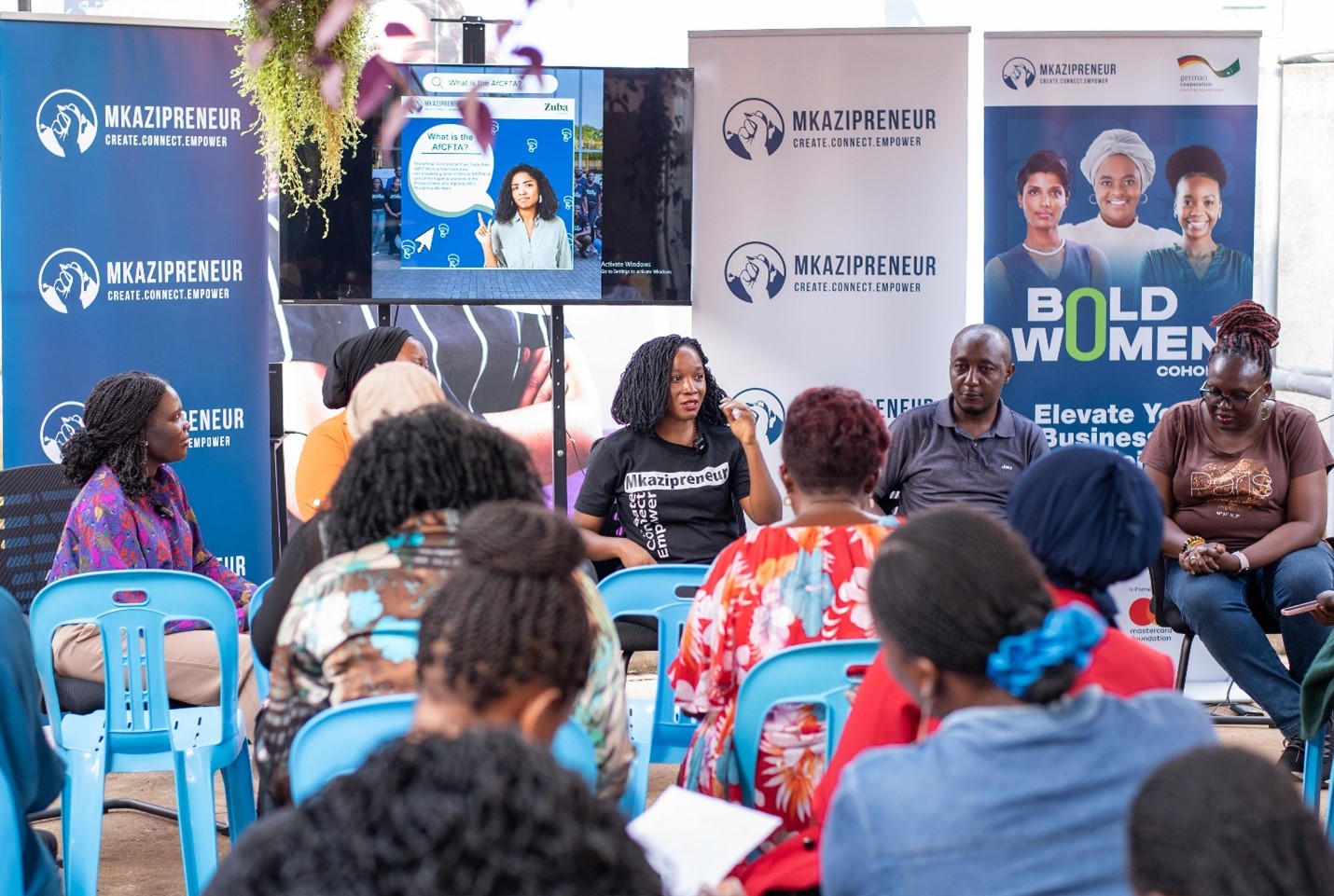
Immy Nakyeyune, speaking at the documentary screening event on the need for business formalization
Despite
the challenges in financing, the documentary also featured Shamirah Kimbugwe,
founder of Pivot Payments Limited, who uses her company as a platform to train
and empower entrepreneurs with the necessary technical ability to carry out
trade using an effective digital transaction process. As the first
female-founded fintech company, Pivot Payments Limited cuts down costs involved
in carrying out transactions in trade, limit risks involved in moving liquid
cash for business purposes and use of convenient transaction platforms like
bank, mobile money and merchant codes which simplify trade for all.
“I would advise women, once you find a solution to a problem facing a woman in Uganda like in Katwe for example, its probably the same problem faced by a woman in Cote D’Ivoire and you just need to make sure that your solution is scalable to access everyone,” Shamirah Kimbugwe, founder of Pivot Payments Limited.
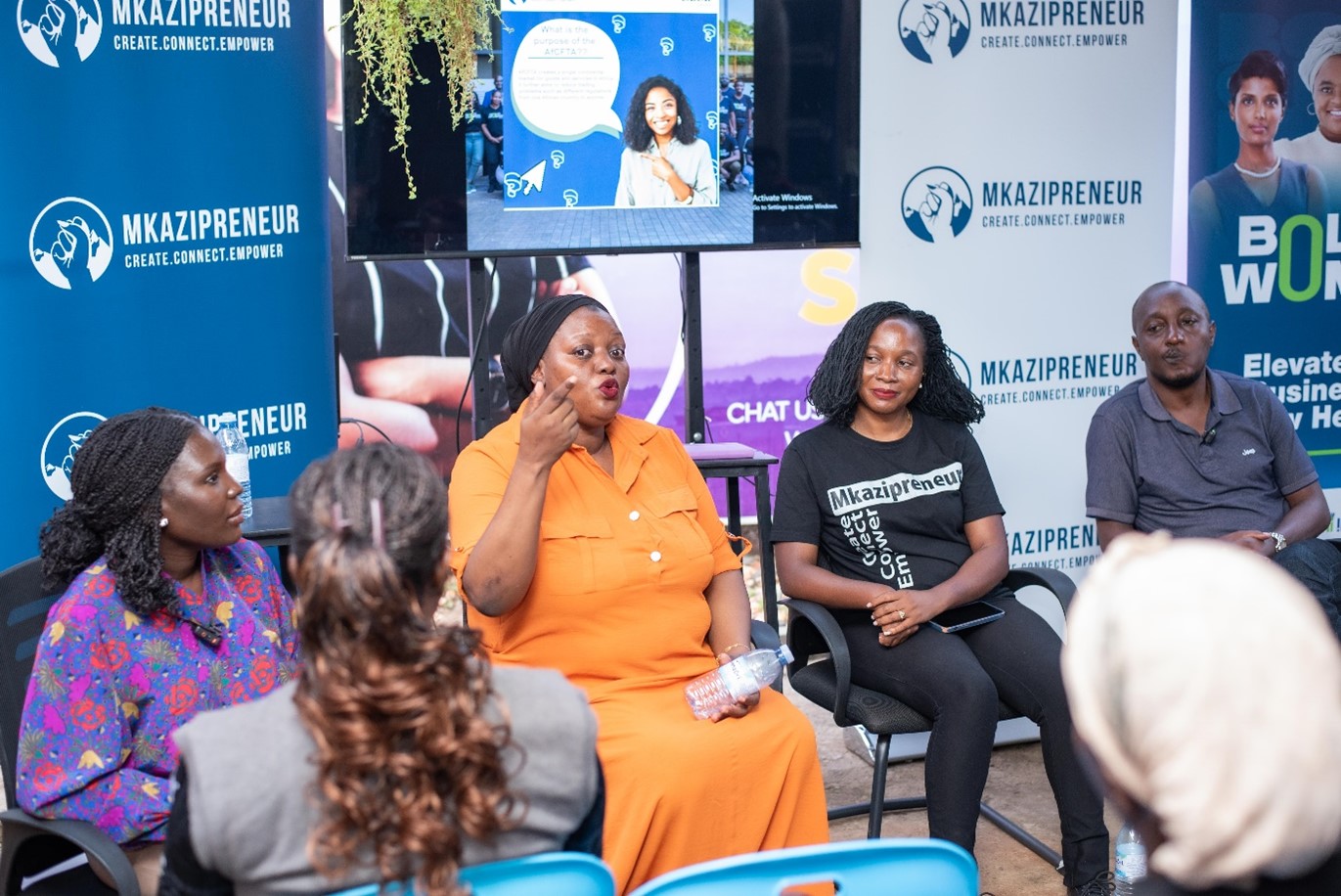
Shamirah Kimbugwe, founder of Pivot Payments Limited speaking to fintech opportunities for women entrepreneurs
The
documentary also featured a success story from Lydia Nakayenze-Schubert,
founder of Moo Me Gen, who managed to participate in cross-continental trade
despite the unprecedented occurrence of the COVID-19 outbreak which emerged
just as soon as she established her company Moo Me Gen, a shea butter
processing entity.
“We
opened up the company in March 2020 with the intention to participate in
cross-border trade and that is when the COVID mayhem started,” Lydia
Nakayenze-Schubert, founder Moo Me Gen.
“However, we noticed that much as international borders were closed, trucks continued moving across Africa moving goods from all over the continent. We later decided to trade within Africa and managed to survive past the pandemic.”
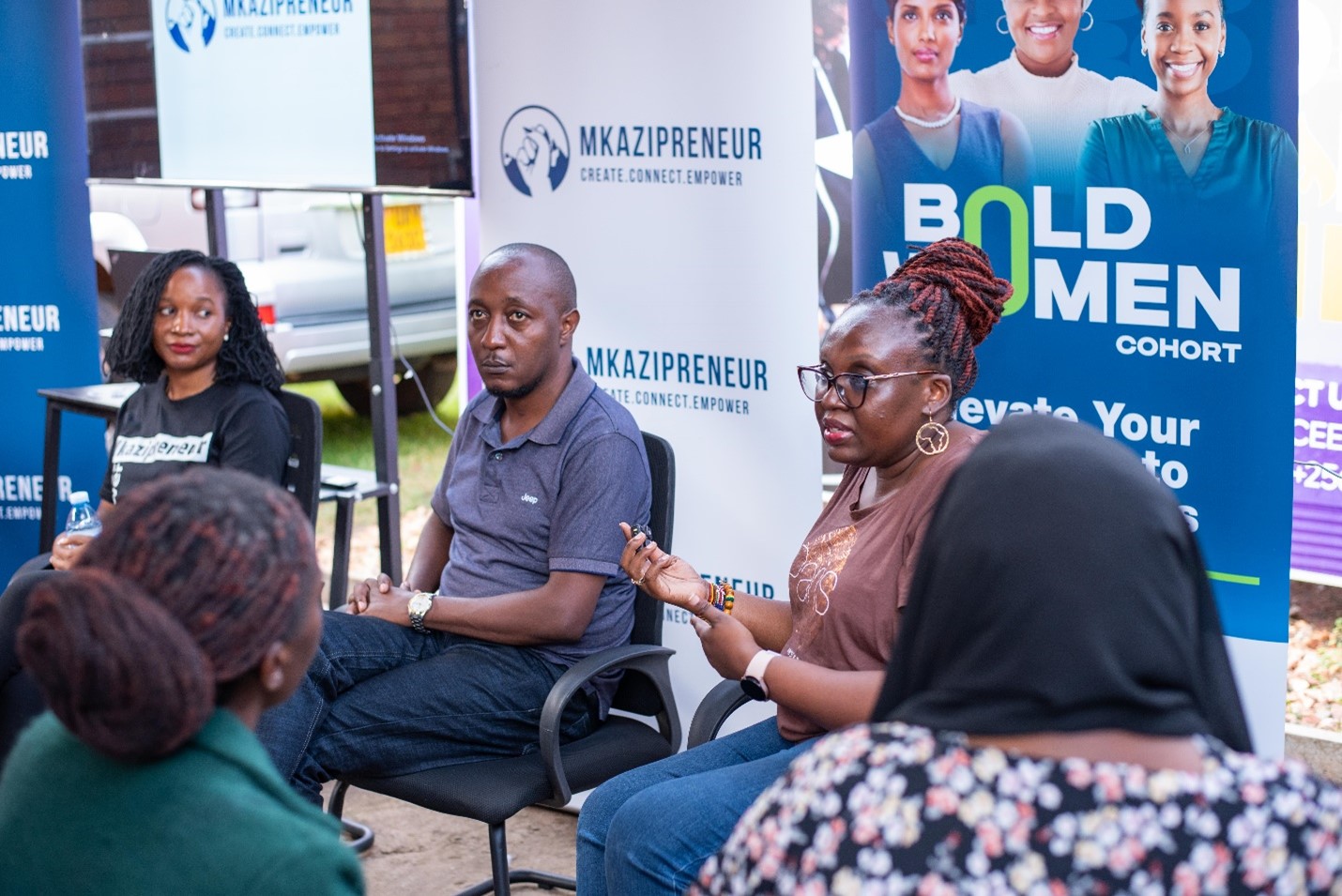
Lydia Nakayenze-Schubert, founder Moo Me Gen on a panel on ways to boost trade as a woman in business
These
influential women formed a panel discussion at the screening, inspiring
attendees with stories of overcoming barriers and achieving success in trade.
Their insights underscored the vast potential of cross-border trade for women
entrepreneurs, further driving Mkazipreneur’s mission to support women-led
businesses.
Watch
the full documentary here: https://www.youtube.com/watch?v=sHeyS3AYaxU
